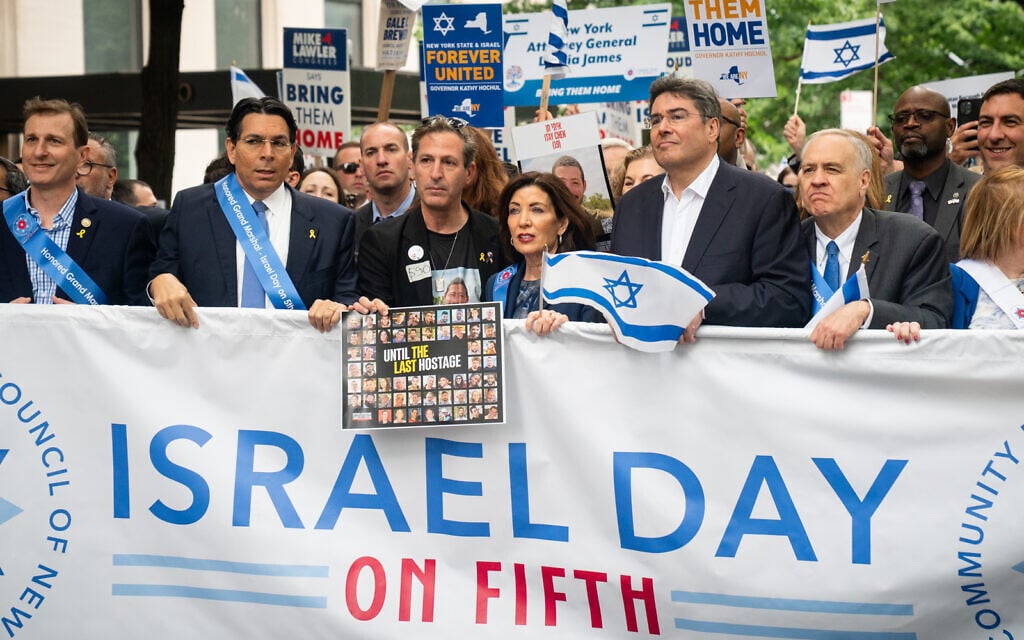


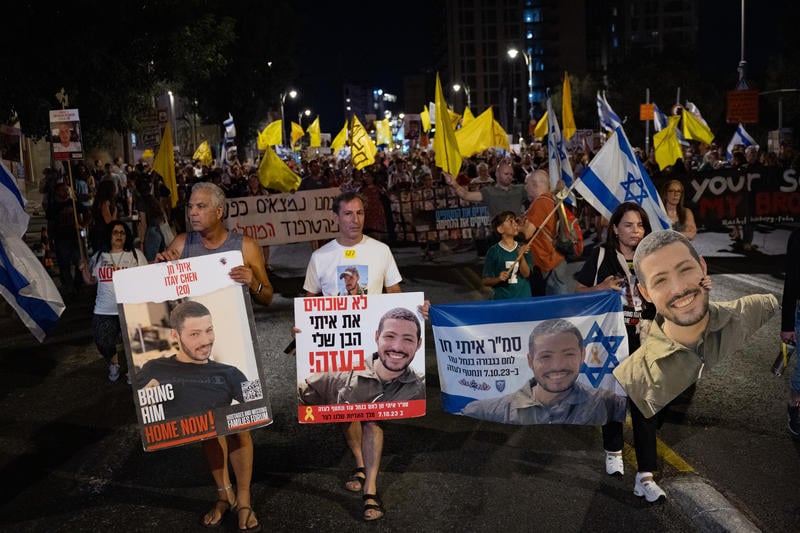
Ruby Chen speaks about his son, Itay Chen, in the present tense, though the Israeli government has officially declared Itay dead.
Itay, who was 19 when he was kidnapped on October 7, 2023, has always been in a rush to experience everything life has to offer — family, friends, singing, dancing, basketball, judo, Boy Scouts, and travel, Chen said. He described the family’s beloved “sandwich,” or middle child, as curious and energetic, living as if “he had no time.”
Itay has “a beautiful life” with dreams of the future, he said.
“He should have been out of the army by now. He should be planning for university or traveling with his girlfriend,” Chen added.
Instead, Itay is one of 48 hostages still being held in Gaza, and one of 26 who have been declared dead by Israeli authorities. In March 2024, the Israel Defense Forces announced that it had determined that Itay, an American-Israeli soldier serving in a tank, was no longer alive. According to the IDF, he was killed on October 7, 2023, and abducted from the Gaza border following a battle with terrorists during the Hamas onslaught that saw some 1,200 people in southern Israel slaughtered and 251 abducted to the Strip.
“We were in limbo for five days,” Chen recalled. When the army did eventually contact the family, it was initially to say that Itay was missing. During that period of uncertainty, Itay’s family entered a “living hell,” one they have never left.
The Chens are tragically far from alone in the unique purgatory that they have been forced to endure for the last nearly two years — families who have been informed of their loved ones’ deaths, but whose remains are still held in Gaza.
Other families have also continued to treat their loved ones as alive. Unlike those stuck in Kubler-Ross’s first stage of grief, the relatives’ disbelief is underpinned by a lack of physical evidence, allowing them to cling to hope, however scant, even as they long for closure.
We feel like we’re in a suspended dimension. We’re not able to move forward
At the same time, the uncertainty may not keep their son or daughter from being downgraded in the eyes of the government or the public, making families’ already impossible straits that much harder.
“I understand that the army wants to give some kind of certainty to families, but it’s not enough to say that [he’s dead] when there isn’t any additional ability to process that statement,” Chen said, noting that determinations were based on intelligence alone. “We feel like we’re in a suspended dimension. We’re not able to move forward.”
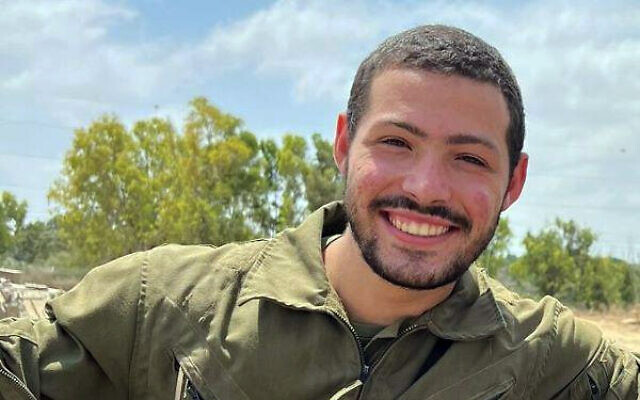
The Chen family has said that they will not hold a funeral for Itay or sit shiva, the traditional seven-day Jewish mourning period, until his body is returned from the Strip.
“When [my father-in-law] passed away last year, we saw him in the hospital, we said goodbye, and we had a funeral. You have those components that help you understand what it means to say goodbye,” Chen explained. “Here, there’s nothing. It’s suspended.”
The absence of physical evidence means that the family is left with uncertainty about his fate.
“You always have doubts,” said Chen. “Even though we were told how [the army] reached their conclusion, there’s always the thought that maybe a doctor showed up, or somebody did something.”
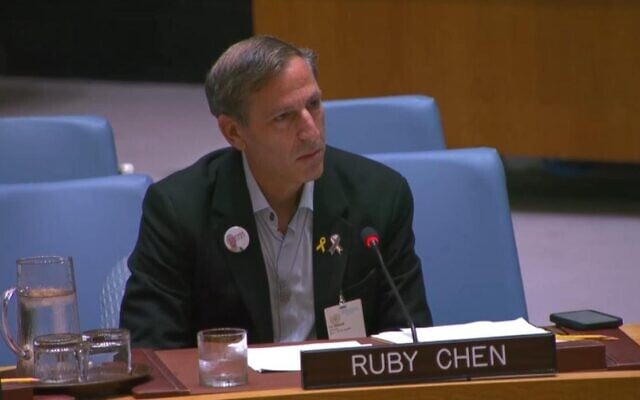
The parents of Inbar Haiman — the last female hostage in Gaza — also don’t believe their daughter was murdered, according to Inbar’s aunt Hana Cohen.
As long as there’s no burial, there’s no coming full circle
“They think that she is alive somewhere,” Cohen said. “They can’t accept it. And as long as there’s no burial, there’s no coming full circle, no healing. They live in uncertainty.”
Cohen has taken up the banner for her family, advocating for the return of her niece almost daily in the Knesset, because Inbar’s parents and surviving brother are “broken” over her loss.
“It felt like the sky had fallen,” she said, describing the blow to the family after Inbar’s abduction on October 7. “We stopped living.”
Haiman, 27, was a visual communications student from Haifa and a well-known graffiti artist who went by the alias “Pink.” She was abducted from the Nova music festival, where she was volunteering.
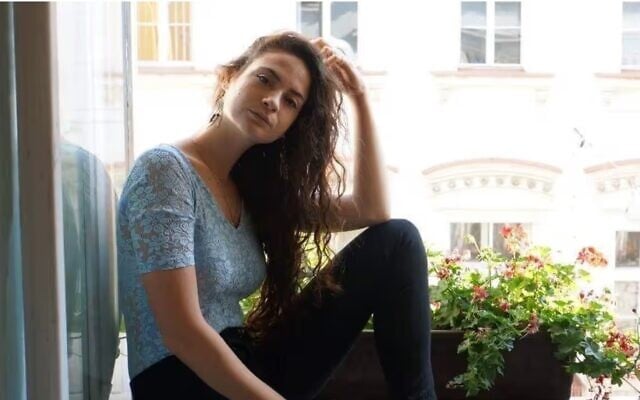
Her family initially believed that she was taken hostage and alive, but injured. They were later informed of her death in December 2023, but still don’t know how or when she was killed. Her body is believed to remain held by terrorists in the Strip.
“Inbar is buried there in Gaza, and her parents are buried here in Israel. They’re alive, but they’re no longer among the living,” Cohen said.
Of the 48 hostages in Gaza, Israel says 20 are thought to be alive, though there are grave concerns for the fates of two more. Of the 26 the army has said are dead, 25 were taken on October 7, and one, soldier Hadar Goldin, has been held since August 2014, when he was killed in a surprise Hamas attack during Operation Protective Edge.
Many families say that once the state declared their relatives dead, they were treated as less important — both by the government and by the public.
“When our prime minister speaks, he says that he is obligated to return the 20 hostages,” said Cohen. “But what about the 30 fallen?”
Families describe themselves as feeling like they have a separate status and feel the need to “fight even harder to make sure that we’re not forgotten,” in Chen’s words.
“We’re collateral damage,” said Chen, articulating a sense shared by families of deceased hostages that they are no longer a priority for the state. “We’re not that significant. Itay is not the son of a prime minister or a minister. And therefore, the urgency is not at the same level that it would be.”
We have 30 dead there. If we don’t bring them back, they will disappear, and Gaza will be rebuilt on top of them
A paramount fear is that the murdered captives will be left beneath the rubble of Gaza — one that has been exacerbated amid the government’s plans to expand fighting, putting negotiations for the hostages at risk.
“We have 30 dead there,” Cohen said. “If we don’t bring them back, they will disappear, and Gaza will be rebuilt on top of them.”
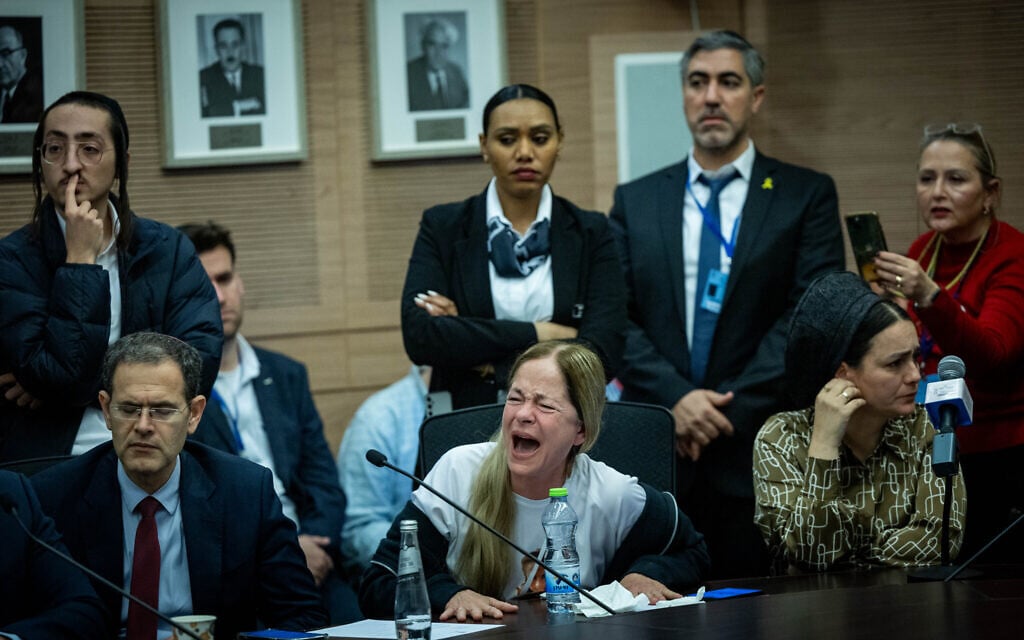
There is “complete indifference” toward the families of murdered captives, Cohen added. “The government doesn’t understand what it means to be the family of a dead hostage. They don’t grasp the complexity of the suffering.”
When closure does come for families of slain hostages, the pain of losing a loved one is still there, and the hurt can be exacerbated by a feeling of no longer mattering, said Hoshea Haggai, whose brother Gadi and sister-in-law Judih — both American citizens — were murdered and taken captive by Hamas on October 7 from their home on Kibbutz Nir Oz.
When the IDF recovered their bodies in June, the family felt a measure of relief in finally being able to bury them. But Haggai said that almost immediately, the painful reality set in: families like his were no longer at the center of national concern.
“Nobody talks about what is going on with the families of hostages who came back in a coffin,” he said. “Suddenly it’s over and you feel abandoned.”
He explains that once a captive is declared dead, the government is less concerned. The families of the murdered remain in the shadows, their grief acknowledged only briefly before being set aside.
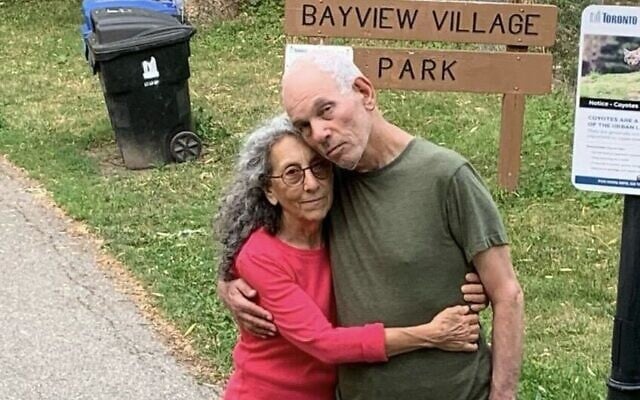
Negotiations with Hamas to free hostages in batches have largely concentrated on those still alive, who advocates say continue to face torturous conditions and are under increasingly mortal danger the longer they remain. Most of the slain hostages who have been returned to their families have been recovered by troops rather than released in swap deals, such as Idan Shtivi and Ilan Weiss, two captives whose remains were repatriated by the IDF in recent days.
Families say the lack of talks for a comprehensive deal bringing everyone back has added unnecessary friction between the families of living and dead hostages, as though they carry different statuses.
“It was a big mistake to build the framework in such a way. They should come out together. And the government needs to do a better job in making that happen,” said Chen.
While much of the public supports making painful concessions to bring back living hostages, including releasing terror convicts responsible for mass murder, many don’t necessarily support paying a similar price for those no longer alive.
“People don’t understand it. They think that if she is dead, then that’s it,” Cohen said. “I don’t understand what people think, what the government thinks. This is our girl; she’s a part of us, a part of her parents. They want her back, no matter what.”
They threw her like a dog into some pit, and now we’re bartering over her body
For Cohen, the cruelty lies not only in Inbar’s murder but in the denial of the most basic dignity of a proper burial and closure for her parents.
“We got two blows in one: we lost our girl, and we can’t bury her. They threw her like a dog into some pit, and now we’re bartering over her body,” she said.
For Haggai, who suffered a heart attack last year, recovering from the trauma of the last two years remains impossible.
“I thought that after Gadi’s and Judih’s funerals we could start to recover a little, start to come back to life,” he said. “But I knew so many people from Nir Oz. And I know the other hostage families, and each death is a punch to the stomach. I don’t sleep.”
Even after getting his loved ones back, Haggai said he can’t heal until Itay, Inbar, and the other hostages are returned. “I’m sure I’ll be able to start to recover when they’re all here,” he said.
Until then, he finds solace only among other hostage families, where no one needs to explain their pain.
“I feel more complete when we’re with them, because everyone knows exactly what we’re going through,” Haggai said. “But I can’t recover, seeing what they’re still going through.”

